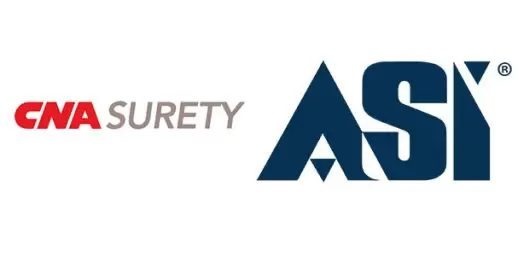If you are a horse owner that shows, breeds, or races horses, consider purchasing a Pearland TX Equine Insurance! Horses that are part of a business are also a source of income. Therefore, it is a great idea to purchase insurance to protect against any loss or medical expenses you incur as a horse owner.
When you find yourself looking for Pearland TX Equine Insurance, don’t hesitate to contact the professional agents at Texas Insurance Agency. We have been in business since 1999, serving thousands of customers and helping them find protection for their investment.
There are a variety of equine insurance policies to choose from. Which one you select will depend on your status as a horse owner. The insurance policy that covers a person who boards horses will be different than what you need if you frequently show horses.

Protect your farm, with insurance from Texas Insurance Agency.
What Does Equine Insurance Cover?
Loss of Use
Loss of Use insurance policies covers performance horses in the event that they suffer a permanent disability and are no longer able to perform. For example, a horse that is an award-winning jumper, dressage champion, or racer can receive coverage from a loss of use claim when they are injured or disabled.
It is important to know of any exclusions to your policy. There are very specific qualifications and circumstances under which your insurance company will approve a claim. Your horse’s injuries must meet those qualifications. Many policies will outline and emphasize the difference between ‘loss of use’ and ‘lack of ability.’
Care, Custody, and Control
This type of insurance policy is meant for those individuals who board, breed, or train horses on their property. Also referred to as CCC insurance, this policy provides great coverage for those who do not own the horses in their care, custody, and control.
Typically, although you don’t own the horse, you are legally responsible for its health, safety, and security. If something happens while this horse is in your care, custody, and under your control, dealing with a lawsuit can have financial consequences. CCC insurance helps you manage the financial aspect of any lawsuits or payouts that threaten the stability of your business.
Mortality Insurance
If your show horse becomes mortally injured or dies, mortality insurance is a good policy to have. For instance, if you travel a lot with your horse and it is injured during transit, mortality insurance could pay medical expenses that result from the injuries.
In addition to unexpected death and injury, mortality insurance covers your horse in the instance that it is stolen. If you have made every effort to locate the horse with no luck, or the horse has died during the theft, it is likely that you will qualify for a claim. Supplemental policies are also available to bridge gaps in coverage.
Major Medical Insurance
Major medical insurance s a necessity for anyone with a horse. Whether yours is a performance horse or otherwise, medical insurance helps you cover the cost of veterinarian bills that stack up. Injuries, diseases, illnesses, and most major surgeries are covered under a major medical insurance policy.
A supplemental plan to medical insurance is the surgical insurance policy. This type of policy covers the costs associated with major or minor surgeries.
When you choose the right plan and deductible, medical insurance can give you peace of mind about providing the best medical care for your horse. Best of all, you don’t have to worry about the financial aspect of their care. There are a few common exclusion to be aware of. Keep reading to discover more!

Contact us today to learn about our Pearland TX Equine Insurance
Common Equine Insurance Exclusions
Age
Most equine insurance policies are only available for horses that are ages fourteen and below. However, there are some companies that do offer low-cost options for coverage of specific perils that could lead to death or injury.
Coverage for medical expenses from injury, illness, disease, or surgery is seldom available. It is important to keep in mind that even if you do find coverage, you should expect high premiums.
Preexisting or Developing Conditions
Equine insurance policies will commonly exclude care coverage of any medical condition your horse has. Additionally, if any conditions arise throughout the horse’s life, you should expect the insurance company to exclude those from your policy eventually.
This is because equine insurance is meant to offer preventative coverage rather than long-term care coverage.
For example, if your horse develops a heart condition that requires long-term care and medication, your policy may cover medical expenses in the short term. However, if the diagnosis becomes a lifelong event, it will eventually be excluded.
Euthanasia
Euthanizing a horse is always a difficult decision. Like yourself, insurance companies do not take the decision lightly and therefore have strict regulations that govern whether or not euthanasia will be covered by your policy.
Insurance companies follow guidelines issued by the American Association of Equine Practitioners (AAEP) in order to ensure there is no alternative to euthanasia. Here are examples of factors that insurance companies consider with regards to the necessity of euthanasia:
- Amount of pain or suffering
- Incurable diagnosis
- The horse is a liability to the safety of others and itself
- The diagnosis requires consistent medications and pain relief for the rest of the horse’s life.
If your horse checks most of the above boxes, then there is likely a justification for euthanasia. Either way, the horse owner’s decision should align with recommendations provided by a certified veterinarian.
Pearland TX Equine Insurance

Save big on your Pearland TX Equine Insurance by calling Texas Insurance Agency.
For more information about Texas Insurance Agency, visit our website! There you will also find links to our blog and locations, and you can even receive a complimentary quote. For Pearland TX Equine Insurance, contact Texas Insurance Agency first.
Pearland, TX Fun Facts:
- Pearland was founded in the late 19th Century.
- In 1934, Pearland residents struck oil.
- Downtown Houston is about twenty minutes from Pearland.
- For more information about Pearland, TX, visit the city’s website!






